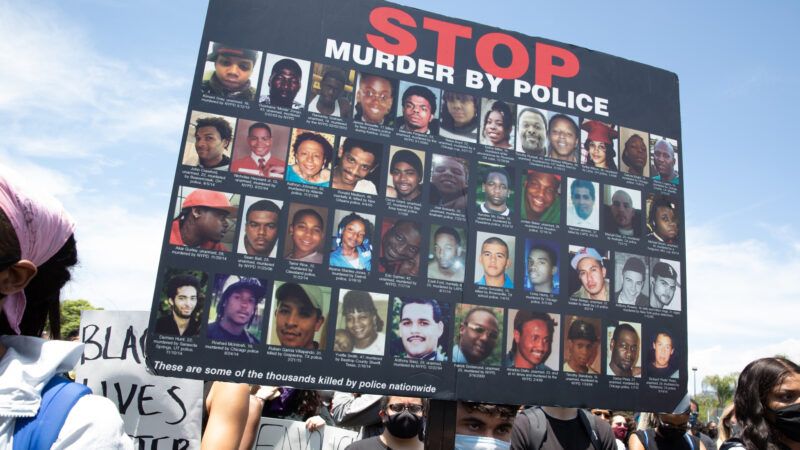California Lawmakers Try Again To Create a System To Decertify Bad Cops
Union resistance shut down last year’s effort.

After legislation was shut down by law enforcement unions last year, a California lawmaker is trying again to establish a legal process to decertify bad cops and get them off the force.
California is one of only four states (New Jersey, Rhode Island, and Hawaii being the other three) that does not have an official system to strip officers found guilty of misconduct of their badges, meaning that even when a cop gets fired for bad behavior, he or she can just go to another city and get rehired onto another force.
Massachusetts used to be in the same boat, but lawmakers passed a law that took effect this year to create a decertification process. In California, state Sen. Steven Bradford (D–Gardena) introduced similar legislation that died right at the finish line last September as resistance from police unions prevented it from passing.
According to Courthouse News Service, Bradford has made changes to his bill to address some due process concerns that law enforcement representatives had, and now it's back as S.B. 2. Within California's existing Commission on Peace Officer Standards and Training, it will create the Peace Officers Standards Accountability Division. The division will have the power to investigate police and decertify them if they've broken the law or engaged in serious misconduct like filing false reports, destroying or concealing evidence, tampering with their body cameras, abusing their police powers, and a host of other inappropriate behaviors.
Bradford's new bill still keeps one of the sticking points from last year's bill: This new commission will only have two people on it with police backgrounds. The remaining six members of the commission cannot be current or former officers. So while police representatives will have a voice on the commission, they'll be outnumbered by civilians, including two who themselves were either victims of police abuse or relatives of a victim. Last year, representatives from police unions complained that this meant the board would be "inherently biased against officers," but that part seems to be staying.
Also in S.B. 2 is a reform, but not a complete elimination, of the state's civil qualified immunity regulations. Qualified immunity rules often shield law enforcement officers from being held financially responsible when they violate somebody's rights. It's a terrible policy, essentially giving permission to police to violate rights and get away with it. In the last two years of police reform activism, we've been seeing increasing efforts to eliminate it.
S.B. 2 unfortunately does not eliminate qualified immunity in the state, but it does make it easier for victims of police abuse to make a case against them. Currently, California's regulations require that anybody attempting to sue a police officer for violating his or her rights prove that the officer had a "specific intent" to do so. That means reckless and irresponsible behavior by an officer could still be protected if the cop didn't actually intend to cause harm to others. Conversely, S.B. 2 allows for "deliberate indifference or reckless disregard" to be sufficient to bring about a lawsuit.
Both reforms would significantly make it easier in California to hold law enforcement officers responsible for misconduct. Let's see if lawmakers will be able to get it past the state's powerful police unions this year.


Show Comments (19)